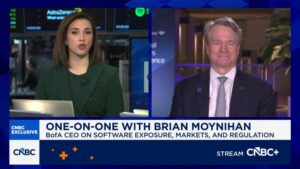Share this page:
The pandemic has had a heavy impact on the overall economy. It has also affected households directly, pushing many families deeper into debt. Citizens Advice estimates that it will take the average Brit 30 months to pay back their priority debts – and this is only if they use all of their disposable income for debt repayment.
In addition to increased credit or overdraft debts, an estimated six million UK adults are now behind on at least one household bill since the pandemic started.
How the numbers look
The bills most Brits have defaulted on are mobile phone or broadband bills (3.4 million), water bills (3 million) and energy bills (2.8 million). As the numbers show, the large majority of those who fell behind on household bills ended up defaulting on more than one payment. An additional 2.8 million fell behind on their council tax payments and 1.2 million had trouble paying their rent.
Half of the six million people who fell behind on household bills also had trouble making their credit card payments.
How the debts stack up
Certain groups are far more likely to have fallen behind than others. According to Citizens Advice, people already in a precarious situation before the pandemic were the most affected. Another group affected is key workers, with one in five (21%) falling behind on their bills, compared to one in ten (7%) in the average population.
Minorities have also fared worse financially during the pandemic. For example, only one in eight white people have fallen behind on their household bills compared to one in three Black people.
Lacking job security, suffering a reduction in income or having hours cut down have also played a significant role. Among those losing even a small percentage of their income during the pandemic, 27% have fallen behind on their bills.
The impact of the pandemic goes beyond basic bills
Falling behind with household bills has not been the only issue caused by the pandemic for many Brits. Research shows that 18% of people who couldn’t pay their household bills also couldn’t afford essentials including food. To make ends meet, 22% had to sell possessions and 20% had to borrow money.
According to Citizens Advice, there was also a significant increase in the number of people with a negative budget during the pandemic. This involves people having £0 or less left after paying their basic fixed bills. The number of people in this situation grew significantly during the early months of the pandemic and has continued to grow.
Reaching out for debt support
If you’ve been affected by the pandemic and are unable to make repayments, help is available. For example, energy providers are obligated to offer a debt repayment plan based on your ability to pay. Water and telecoms companies are less regulated but are likely to work with you to set up repayments. You can also talk to your local authority to discuss council tax debts and repayment.
While a debt management plan or bankruptcy might work in certain cases, Citizens Advice recommends trying other options first to avoid long-term consequences and reduce fees and costs.
Could you be rewarded for your everyday spending?
Rewards credit cards include schemes that reward you simply for using your credit card. When you spend money on a rewards card you could earn loyalty points, in-store vouchers airmiles, and more. MyWalletHero makes it easy for you to find a card that matches your spending habits so you can get the most value from your rewards.
Was this article helpful?
YesNo
About the author
Diana is a writer specialising in debt repayment, savings, and personal investments. Her work has also appeared on MSN Money, Inc. Magazine, and Yahoo! Finance.
Share this page:
Some offers on The Motley Fool UK site are from our partners — it’s how we make money and keep this site going. But does that impact our ratings? Nope. Our commitment is to you. If a product isn’t any good, our rating will reflect that, or we won’t list it at all. Also, while we aim to feature the best products available, we do not review every product on the market. Learn more here. The statements above are The Motley Fool’s alone and have not been provided or endorsed by bank advertisers. John Mackey, CEO of Whole Foods Market, an Amazon subsidiary, is a member of The Motley Fool’s board of directors. The Motley Fool UK has recommended Barclays, Hargreaves Lansdown, HSBC Holdings, Lloyds Banking Group, Mastercard, and Tesco.
This post was originally published on Motley Fool







